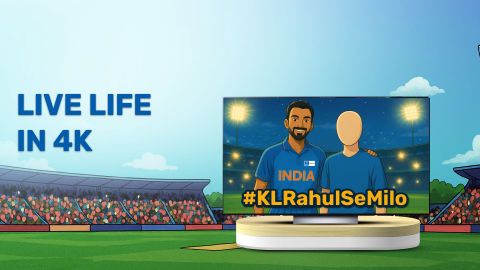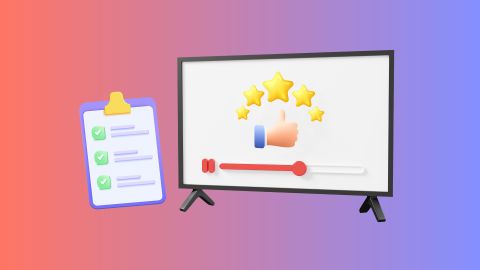Smart TVs and Android TVs are popular choices for modern home entertainment. Smart TVs come with built-in apps and internet connectivity, making it easy to stream content. Android TVs, on the other hand, offer a more customisable experience with access to the Google Play Store and a wide range of apps.
A Smart TV is a television with built-in apps and internet access. It runs on a brand-specific operating system like Tizen (Samsung) or webOS (LG). These TVs are easy to use and come with preloaded apps for streaming and browsing.
An Android TV is a type of Smart TV that runs on Google’s Android operating system. It gives you access to the Google Play Store, where you can download many apps, games, and services. It also supports Google Assistant for voice control.
Smart TVs offer a simple and brand-focused experience. Android TVs provide more flexibility, more apps, and better integration with Google services. If you want a TV that is easy to use, a Smart TV may be right for you. If you prefer more control and customisation, an Android TV could be a better choice.
Why spend more when you can save more on your next electronics purchase? Use the Maha Bachat savings calculator to combine dealer offers, brand offers, and Bajaj offers to bring down your purchase cost. Calculate your extra savings today!
Key differences between Smart TVs and Android TVs
When choosing between a Smart TV and an Android TV, consider the following.
Parameter
|
Smart TV
|
Android TV
|
User Interface
|
Simple and easy to use
|
Customisable with more options
|
Customisation
|
Limited
|
Extensive with Google Play Store access
|
Content Discovery
|
Built-in apps and services
|
Wide range of apps and services
|
Android TV is the foundation
|
Not applicable
|
Built on Android OS for better integration
|
Screen Mirroring and casting
Screen mirroring and casting are not the same. Mirroring shows your entire device screen on the TV, including layout and actions. Casting sends specific content, like a video, from your device to the TV. Your actions on the device do not appear on the TV.
- Screen mirroring and casting: Screen mirroring displays your entire device screen on the TV, including menus and actions. Casting streams only selected content like videos. Many modern LED TV models support both features, but compatibility depends on the operating system and built in technology such as Chromecast.
- Voice assistants: Smart TVs may use brand specific voice assistants like Bixby or Roku Voice. Android TVs use Google Assistant, offering consistent voice control, better search results, and smart home integration.
- Automatic updates: Android TVs receive regular updates from Google for improved security and app compatibility. Smart TV updates depend on the manufacturer and may become limited over time.
- App availability: Smart TVs use brand specific app stores with limited choices. Android TVs access the Google Play Store, offering a wider range of OTT apps, games, and utilities.
- Gaming support: Smart TVs support basic games through built in stores. Android TVs provide broader gaming access, console compatibility, and better support for cloud gaming services.
Also explore - What is Streaming TV and how does it work
Smart TV vs Android TV - Feature comparison table
Feature
|
Android TV
|
Smart TV
|
Operating System
|
Android OS
|
Varies (webOS, Tizen, others)
|
App Store
|
Google Play Store
|
Brand-specific store
|
Services
|
Google services included
|
Depends on brand
|
Interface
|
Consistent Android layout
|
Varies by brand
|
App Availability
|
Wide range of apps
|
Limited by OS and brand
|
Integration
|
Works with Google and smart home devices
|
May or may not support smart home
|
Updates
|
Regular updates from Google
|
Depends on brand and OS
|
Which one is better - Android TV or Smart TV
If you want a TV with more apps, regular updates, and better gaming support, choose an Android TV. It works well with Google services and smart home devices. If you prefer brand-specific features, like those from LG or Samsung TVs, a Smart TV may suit you better.
Advantages of using smart TVs
Easy streaming access: Watch Netflix, Prime Video, and more without extra devices.
User-friendly interface: Simple menus make navigation easy.
Multiple features in one device: Stream, browse, and use social media on one screen.
Affordable options: Available at different price points to suit your budget.
Limitations of smart TVs
Limited app selection: Fewer apps than Android TVs.
Infrequent updates: May affect app performance over time.
Less customisation: Fewer options to personalise your experience.
Privacy concerns: Some models may collect user data.
Price list of Android and smart TVs- Price comparison
When comparing Android TV vs Smart TV, the price range varies based on the brand, features, and screen size. Here's a general price list of Android and Smart TVs
Feature
|
Android TV
|
Smart TV
|
Operating System
|
Android / Google TV
|
Brand specific OS (Tizen, webOS, etc.)
|
App store
|
Google Play Store
|
Brand specific app store
|
App availability
|
Wide range of apps and games
|
Limited compared to Android
|
Voice assistant
|
Google Assistant built in
|
Brand specific assistant
|
Updates
|
Regular updates from Google
|
Depends on brand policy
|
Gaming support
|
Better gaming and cloud support
|
Basic gaming support
|
Price range (32–55 inch)
|
Rs. 12,000 – Rs. 35,000+
|
Rs. 14,000 – Rs. 40,000+
|
Value for money
|
High for app ecosystem
|
Strong for brand optimized features
|
Disclaimer: The features, availability, and pricing of each model are subject to change and may vary. For the most accurate and up-to-date information, please visit the official website.
Note: You can use Bajaj Finserv’s financing options to split any purchase above Rs. 5,000 into Easy EMIs.
Before you decide, explore the latest offers. You may find a great deal on a model that matches your needs.
Get electronics and appliances on Easy EMIs with Bajaj Finserv
Upgrading your home with the latest electronics and appliances is now easier and more affordable with Bajaj Finserv’s flexible financing options. You can also maximise your savings by using the Maha Bachat Savings Calculator—a smart tool that combines brand offers, dealer offers, and EMI offers, all in one place, helping you lower the overall cost while still paying in small, bite-sized instalments. Follow these steps to get started:
Explore products on Bajaj Mall: Browse a wide range of electronics and appliances from trusted brands. Compare features like energy ratings, storage capacity, performance settings, and design to choose the right product for your home.
Visit a partner store: Once you shortlist a model, step into any of Bajaj Finserv’s 1.5 lakh partner stores across 4,000 cities in India. See the product in person, talk to experts, and make a confident decision.
Choose the Easy EMI Loan option: At checkout, select the Bajaj Finserv Easy EMI Loan. Avail financing of up to Rs. 5 lakh and split the cost into convenient monthly instalments. Some products also come with a zero down payment option.
Check your loan eligibility online: Plan better by checking your loan eligibility in minutes. Simply enter your mobile number and OTP to know your pre-approved limit.
Use the EMI Network Card for purchases up to Rs. 3 lakh: Already own the Bajaj Finserv EMI Network Card? Use it for instant, paperless checkout and convert your purchases of up to Rs. 3 lakh into Easy EMIs.
TV by brand
TV by features
TV by size
TVs by brands
TVs by budget













